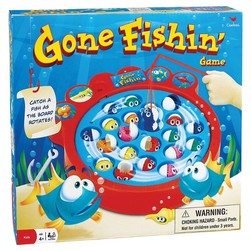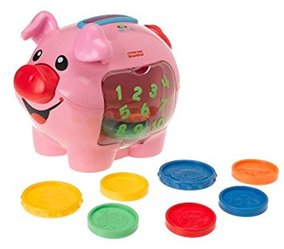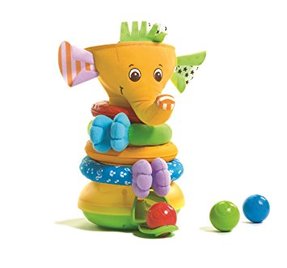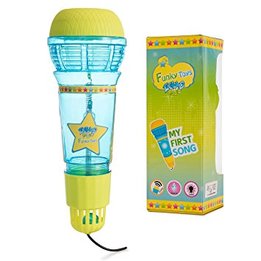This month for our “Toys Without Batteries” post, we decided to switch things up and post about a few toys we like that do have batteries. Battery powered toys are not always a bad thing, even though we tend to veer more towards no batteries in our therapy sessions. Many children are truly more motivated by toys that move, make noise, or light up and this is totally fine. If it gets your child talking, we’re on board! In that direction, we present toys we love that have batteries.

Let’s Go Fishing: Fishing games can be a little tricky (because of the motor skills needed), so we usually recommend this type of game for children that are 5 years or older. If your younger child can successful catch fish, then more power to them and fish away! Once you catch all the fish you can work on sorting or counting. If you want to drag the game out, before putting the fish in their spots, first hide the fish around the room and give your child directions to find them (e.g., “find the blue fish that is under the chair). Or you can hide the fish and ask your child where they found the fish (e.g., in front of the door). These are just a few ways we use this game to work on language skills, but there are many other ways to help build your child’s language skills with this game!

Piggy Bank: This toy is great for young children. It has cause and effect concepts, you can work on requesting (for more coins or certain coins, to open/close the door, music on/off, etc.), building basic concept knowledge (animals, animal sounds, open/close, in/out, on/off, more/all done, etc) and following basic directions. This is a simple, fun toy that also has great potential to help encourage your child’s language development.

Stacking Toy: This toy is a great for young children (toddler age and younger) to work on cause and effect, following directions, beginning turn-taking skills, basic engagement, social and problem-solving skills!

Magic Mic: This toy can be used with younger children learning how to talk or older children working on pretend play or sharing and turn-taking. For younger children you can encourage your child to repeat sounds, words, make requests or sing songs. For older children you can help encourage their pretend play skills by having them “play a part” and give you directions while you play or make up a game using the microphone.
If you missed our other favorite toy blog posts you can find them under the Toys category on our blog! Check back on The Speech Space blog for other fun ideas, toys and games you can do with your child to help increase their communication development.
If you have questions or concerns about your child’s development, contact us at The Speech Space! We offer free screenings, which take approximately 30 minutes, and can help identify potential problems.
